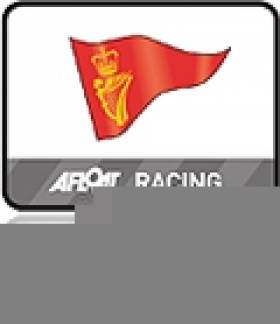Displaying items by tag: Union
Maritime Union 'Taken aback' by 'Strength of Feeling' following Visit to Isle of Man
A trade union has raised worries in keeping ferry workers living on board the Isle of Man Steam Packet’s new flagship, Manxman, as part of proposed new conditions to their employment will affect the local economy and disband communities.
The trade union, Nautilus International which includes representing seafarers working on the £78m Manxman, has spent the last week on the Isle of Man to meet its members and gauge their feelings amid the ongoing dispute.
Nautilus have claimed the seafarers have been threatened with 'fire and rehire' something the Isle of Man Steam Packet has denied.
Speaking to Manx Radio, Senior National Organiser and head of the maritime department at Nautilus, Garry Elliot said they were taken aback by the strength of feeling among members and maintain the Steam Packet is being disingenuous.
Click here for a link to the audio clip of the Nautilus representative.
In August, Manxman made its maiden crossing from Douglas to Heysham, Lancashire in north-west England. The year-round operated route is the main passenger and freight life-line ferry route for islanders.
Wildlife Groups Pledge Union With Oil Spill Response Plan
#MARINE WILDLIFE - The Evening Herald has highlighted the work of a new union of wildlife protection groups which is training volunteers to act the event of serious environmental threats to Ireland's sea bird population.
Wildlife rescue volunteer Pauline Beades from Garristown in north Co Dublin has been working with Ireland's animal groups to change the official approach to wildlife - particularly birds - that get caught in oil spills.
The Irish Seal Sanctuary, Birdwatch Ireland, the ISPCA, the Irish Whale and Dolphin Group (IWDG), Coastwatch and Irish Wildlife Trust have written a joint "letter of comfort" for the Irish Coast Guard, which is the State body charged with dealing with coastal oil spills.
The groups have pledged to work together in the event of any oil spill that involves a threat to marine wildlife.
Their response plan involves an initial wave of volunteers walking beaches to gather affected animals and providing first aid, followed by transfering them to veterinarians in specialised field hospitals, as well as facilities for longer-term care.
Recently Beades helped train volunteers in Limerick, who also attended lectures and demonstrations from visiting wildlife rescue experts from Europe to prepare for any potential sea-borne wildlife emergency.
The conditions were ideal with a 7–knot breeze coming from the S.E. with flat water, blue skies and at the top of the tide. The harbour was looking its best.
The Race Officer set an excellent course. A bit of bias on the line made the start a bit interesting though. Class One got away clean. But Classes two and three had a General Recall.
After the start at Grassy the fleet had a beat out to No.3 The usual debate ensued over which side of the course was favoured. It was a close call in the end. Around No. 3 to starboard, spinnaker up and back to the Cage Bouy. A gybe and then on to No.12 at this stage there was a nice bit of ebb in the tide. It really was a case off keeping the Spinny flying for as long as possible up to the Mark. A nice beat followed, down to Corkbeg and then a nice reach back to the Grassy where the S flag was flying.
It was a good night for Billy Duane in his Sunlight 30 Expression in the White Sail fleet and for Jimmy Nyhan and Maritta Buwalda in their 1/4 Tonner Outrigger in Class 3.
First places also went to Thunderbird a Corby 25 owned by Denis Coleman in Class 2 and Endgame an A35 owned by Frank Doyle in Class 1.































































